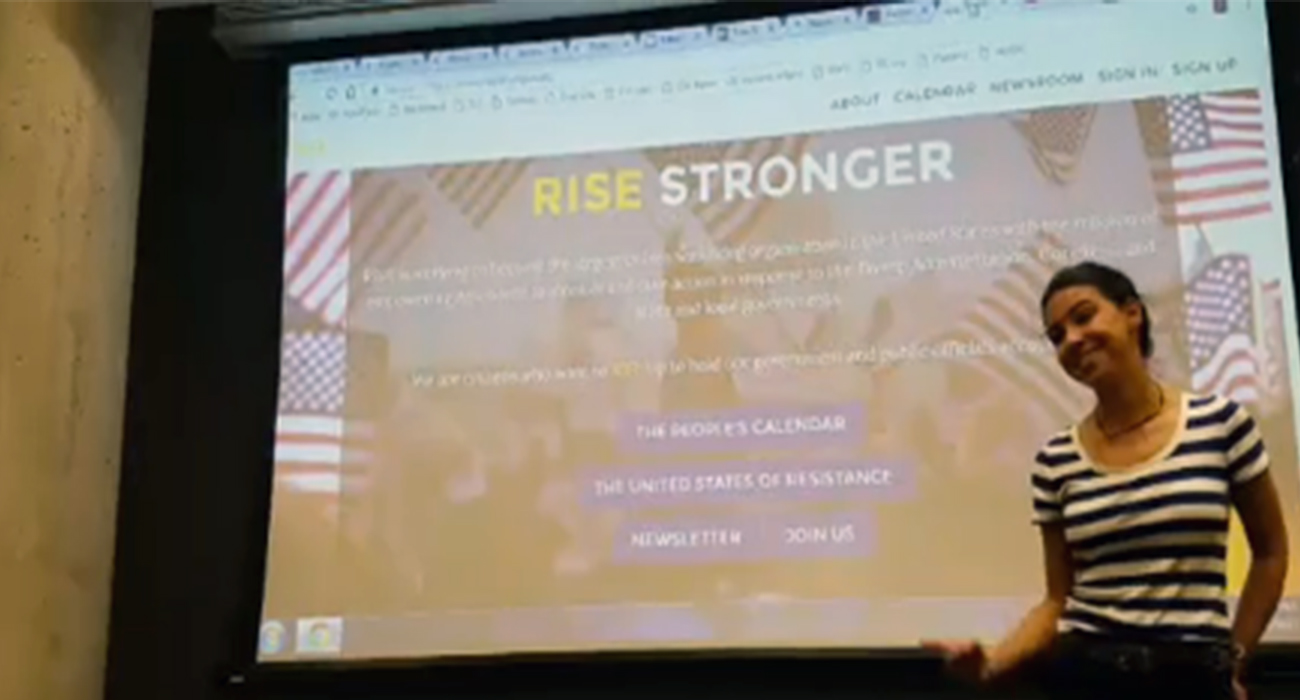On Tuesday, April 4 the mini-grant presentation, “What It Takes to Run for Office and How to Support Others That Run” gave students an inside look at the new ways campaigns are forming and how to mobilize effectively in the post-Obama era. This event was organized by Valerie Echeveste, MPH candidate in Health Communications and Marketing.
Liz Jaff, head of business development of Crowdpac, Inc., led the event. Jaff ran for DNC Vice Chair this past year and has immense government and campaign experience. While her presentation had a Democratic bias, she said she is always ready to help someone do something new. She's worked for the White House, the U.S. Department of Commerce, USAID and on more than 200 grassroots campaigns, and she specializes in the combination of grassroots organizing, political campaigns and technology.
Jaff stressed how the rules have changed since Trump was elected-you no longer need a degree from an Ivy League school or long resume to run.
Now more than ever we need new faces in politics, as people are sick of the establishment. However, anti-establishment should not come at the cost of false information and lack of knowledge. “You should not be waiting for the messiah to come tell you what to do,” but rather do it yourself, Jaff said. This could be running for office, working on a campaign, writing a policy platform or donating to a candidate—there is so much everyone can do.
In terms of public health, Jaff said not enough people in the government are talking about it. National Public Health Week at GW is one way to get the conversation started, but it is up to students to continue the conversation. Jaff encouraged those in the audience to come together and write a policy paper about public health. Then it is easy to post to a long-form social media site, such as Medium, and spread the information to anyone who will take it. Jaff assured that anyone running for office needs help, regardless if they know it or not.
Some great resources for those looking to get involved—in any capacity—are: Arena Summit, Rise Stronger, D.C. United Against Hate, Adopt-A-State, Flippable, and, of course, Crowdpac.
Going forward, the focus needs to be on local politics, civic engagement and game-changing ideas. “There are members of Congress who don’t understand public health correctly ... do it for them,” Jaff said. We can use inclusion to talk about public health and get the attention of politicians and the media.
This mini-grant event broke away from the traditional public health lens, and the timing couldn’t have been better. With the Affordable Care Act still at risk of repeal and without a solid replacement, students have the task of keeping public health at the forefront of concern.


